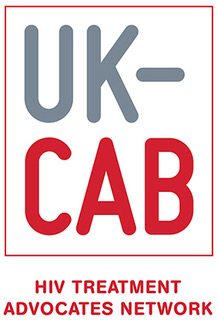7. HIV across the life course
This section looks at the impact of HIV at different times in someone’s life. Separate Standards exist for children living with HIV. These are produced by the Children’s HIV Association (CHIVA) and are not included here.
7c. Older age
Your HIV treatment will carry on working well throughout your life. This means that like everyone else, you may experience some common health conditions as you get older. These could include things like high cholesterol, high blood pressure, diabetes, stroke and heart attack. So the care you may need in later life can be complex. This is discussed more in Standard 4 (Complex HIV care).
Some of us may have experienced long-term issues to do with stigma and bereavement and we may experience issues to do with mental or emotional health. Extra support might be needed at times. This is discussed more in Standard 6 (Psychological care).
Standard 2 is about person-centred care – good quality care that focuses on you as an individual. Your care should not be only about your healthcare needs. It should be about everything that is important to you, including your family and social situation. You might need care from several different health and social care professionals working as a team. This team must manage your HIV drugs and any other medications you’re taking in case the drugs interact.Drug interaction (sometimes drug–drug interaction, or DDI). You might not get the correct dose when drugs interact with each other. ARVs may interact with other drugs you might be taking. These other drugs might be prescribed from your GP, or other specialists, to treat other conditions. They could also be other drugs you might buy from a pharmacy or chemist. And they include supplements or recreational drugs. You might get an increased or reduced dose of any of the drugs involved. This means you might not get the correct dose of your ARV, which could lead to increased levels of virus in your blood. Or you might not get the right treatment for your other condition. So this can be very serious. You should check with your HIV doctor and GP if you’re planning to take any drug as well as your ARVs. If you find it difficult to manage all of these services on your own, you can ask your GP or another care coordinator, such as a specialist HIV nurse, to provide a personalised care plan for you. Peer support may also help.
Your HIV care should be tailored to your needs as you get older. You can expect all the standard screening tests for HIV negative people of your age.
Key messages
You should get support for coping with multiple illnesses from your healthcare team and from peer support. Drug interactionsDrug interaction (sometimes drug–drug interaction, or DDI). You might not get the correct dose when drugs interact with each other. ARVs may interact with other drugs you might be taking. These other drugs might be prescribed from your GP, or other specialists, to treat other conditions. They could also be other drugs you might buy from a pharmacy or chemist. And they include supplements or recreational drugs. You might get an increased or reduced dose of any of the drugs involved. This means you might not get the correct dose of your ARV, which could lead to increased levels of virus in your blood. Or you might not get the right treatment for your other condition. So this can be very serious. You should check with your HIV doctor and GP if you’re planning to take any drug as well as your ARVs. should be checked by all your doctors and healthcare workers.
If needed, you should receive extra psychological and emotional support because of continuing stigma, discrimination and bereavement caused by HIV.
You should receive standard health screenings for all people your age. Some of these may be provided by your GP.
